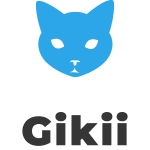The event
The first GikII event in September 2006 established itself as the first workshop in the world where the worlds of law, technology and popular culture came together. We want to discuss whether geek law exists; by the end of the workshop we had created it. Topics covered at the first workshop included surveillance strategies in the novels of Harry Potter; how to avoid building open source killer robots; whether we need a new legal regime for the regulation of virtual property; copyright law, anime, fansubs ; comparative pornography law, TRIPS and Japanese manga; virtual world governance; the law of entropy and old computers; technophobia and technophilia; and much much more.
If you have a paper burning for the oxygen of publicity on any aspect of law AND technology, science, geek culture, blogs, popular culture, wikis, science fiction or fantasy, computer games, digital culture, gender on-line, MMORPGS, virtual property or online human personae, then GikII is your place.
Previous Organising Institutions
University of Sussex
The University of Sussex was the first of the new wave of UK universities founded in the 1960s, receiving its Royal Charter in August 1961. As we celebrate our 50th anniversary, Sussex has become a leading teaching and research institution.
CREATe
 CREATe is the Centre for Copyright and New Business Models in the Creative Economy, a national research hub jointly funded by the AHRC (Arts & Humanities), EPSRC (Engineering & Physical Sciences) and ESRC (Economic & Social Sciences). CREATe is a pioneering interdisciplinary initiative, and globally the first effort to investigate the relationship between Creativity, Regulation, Enterprise and Technology (=CREATe) through the lens of copyright law.
CREATe is the Centre for Copyright and New Business Models in the Creative Economy, a national research hub jointly funded by the AHRC (Arts & Humanities), EPSRC (Engineering & Physical Sciences) and ESRC (Economic & Social Sciences). CREATe is a pioneering interdisciplinary initiative, and globally the first effort to investigate the relationship between Creativity, Regulation, Enterprise and Technology (=CREATe) through the lens of copyright law.
CIPPM: Centre for Intellectual Property Policy & Management
The Centre for Intellectual Property Policy & Management (CIPPM) is part of the Business School at Bournemouth University, UK.
Oxford Internet Institute
The Oxford Internet Institute was founded as a department of the University of Oxford in 2001, as an academic centre for the study of the societal implications of the Internet. The current home in a building owned by Balliol College was formally opened in July 2003.
SCRIPT
The SCRIPT Law and Technology Centre was established on 1 April 2002 with the generous support of the Arts and Humanities Research Council. The Centre has recently been successful in a competitive bid for a further phase of funding from the AHRC and this will continue the Centre’s work until 2012. The Co-Directors of the Phase 2 Centre, which will begin operations on 1 April 2007, are Mr Andres Guadamuz, Dr Rachael Craufurd-Smith, Professor Graeme Laurie, Professor Hector MacQueen, Mr Burkhard Shafer and Dr Charlotte Waelde, all based at the University of Edinburgh. Professor Lilian Edwards is an Associate Director based at the University of Southampton. The Centre’s research themes examine the synergies between intellectual property law and information technology law together with work on media law, medical law & ethics, and forensic evidence. Its remit is to consider the relationship between law, policy and technologies in the broadest sense.
IViR
The Institute for Information Law (IViR) is part of the Faculty of Law of the University of Amsterdam. The Institute is the largest research facility in the field of information law in Europe. It employs over 25 qualified researchers who actively study and report on a wide range of subjects in the field of information law.
Cyberspace Law and Policy Centre
The Cyberspace Law and Policy Centre at UNSW provides a focus for research, public interest advocacy and education on issues of law and policy concerning digital transactions in cyberspace. It is a Centre of the Faculty of Law at the University of New South Wales in Sydney, Australia. Its founding sponsors were the local and global partners of Baker & McKenzie, a leading international law firm.The Centre’s work covers e-commerce, provision of government services by Internet, Public Key Infrastructure (PKI) and the use of encryption, Internet governance, intellectual property in digital artifacts, decision-making technologies in public administration, privacy and freedom of information in digital records, to name only the most obvious issues.
Organizers
- Lilian Edwards
- Andres Guadamuz

Hello, How does one get a copy of previous conferences. I have a patron looking for a particular copy from the 2013 conference. Is this possible?
Pingback: Should teachers use sex as a remedy to unfair content moderation practices? – Prof. Guido Noto La Diega